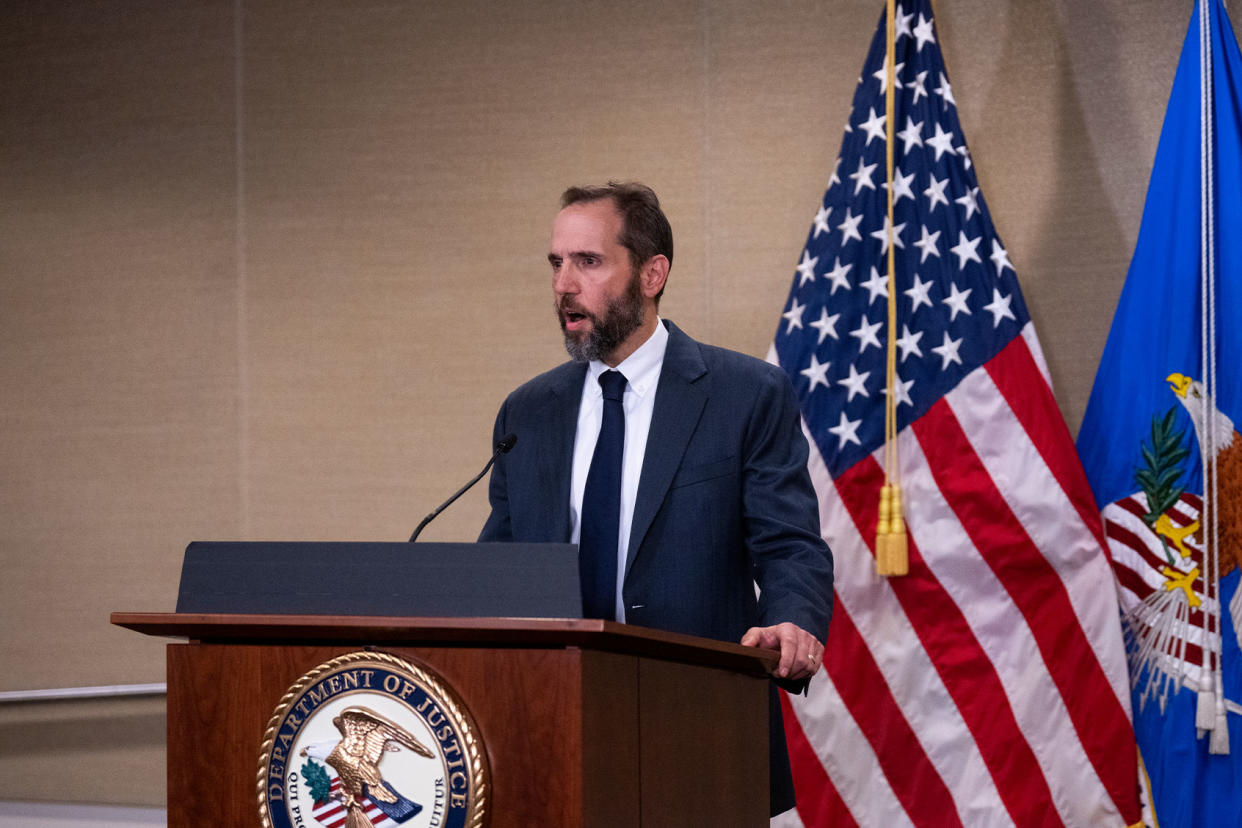Former prosecutors: "Screw up" by Judge Cannon could lay groundwork for Jack Smith appeal

- Oops!Something went wrong.Please try again later.
- Oops!Something went wrong.Please try again later.
U.S. District Judge Aileen Cannon's next move in Donald Trump's federal classified documents case could determine whether the government will have to seek an appeal, former federal prosecutors argued following the Trump-appointee's meeting with special counsel Jack Smith Wednesday to discuss which classified materials will be excluded from the trial.
Ex-U.S. Attorney Joyce Vance explained that given that the case is about illegal retention of classified materials and not the "nature of the classified information," the proceedings pertaining to their presence in the trial under Section Four of the Classified Information and Procedures Act should have been "straightforward" as they are routine for a case like this.
Cannon's schedule for the CIPA Section Four proceedings, for which she scheduled hearings for mid-February, has been unnecessarily drawn out, Vance argued Sunday, noting that Cannon could have held them earlier without delay. Following Wednesday's meeting, Cannon should "follow that simple path forward" for these types of proceedings, Vance added during a Wednesday MSNBC appearance.
"Where we will see fireworks is if she does not," the MSNBC legal analyst argued. "If she tries to let the Trump lawyers, for instance, look at this, then there will undoubtedly be an appeal. And of course, the real ball game is what gets put into trial in a courtroom, ultimately."
Former Mueller prosecutor Andrew Weissman agreed that if Cannon "screws this up, to be blunt, this is the kind of issue that I would imagine the government would take an appeal so that they could have the 11th Circuit hear it."
Weissmann went on to detail the circumstances that would prompt the government to appeal, including if Cannon drastically delays the proceedings or if she rejects Smith's requests for redactions or non-classified summaries to protect the sensitive intelligence.
"Nuclear secrets" or "military plans" the documents could contain are "the kind of data that of course the government would be saying 'I do not want that to be revealed," Weissmann told MSNBC.

